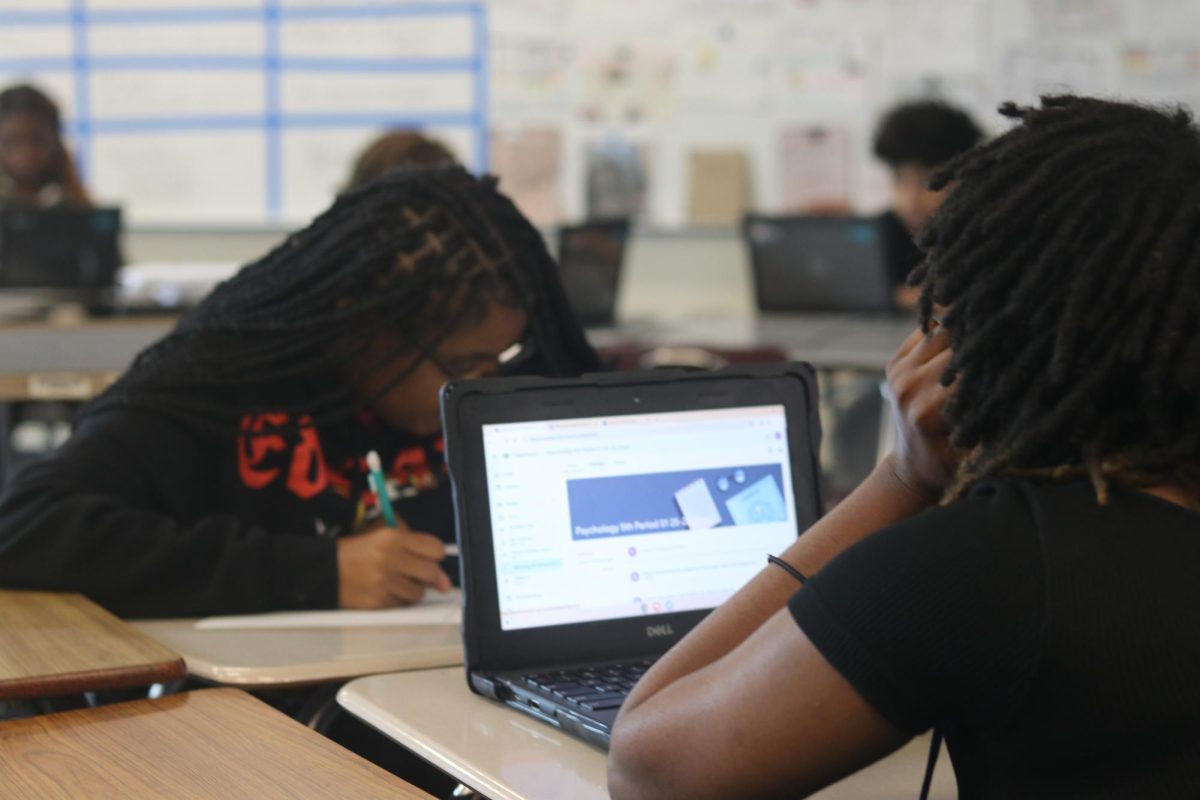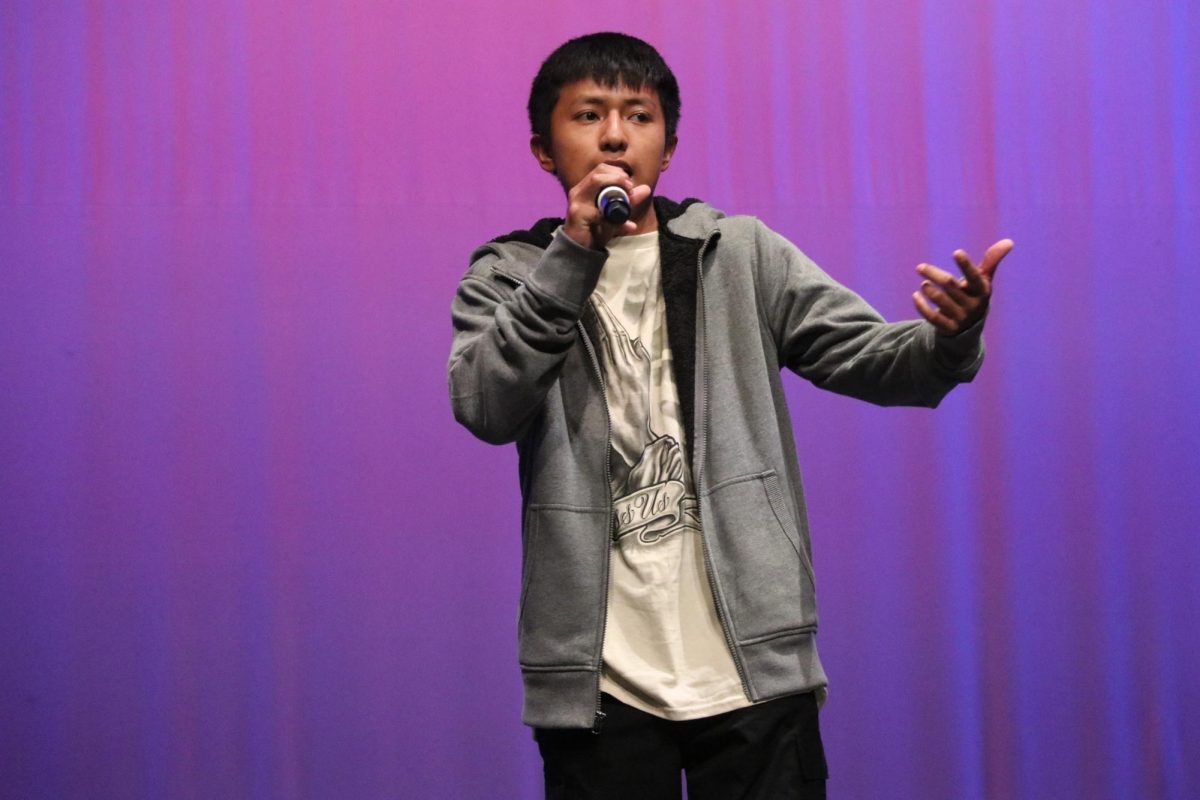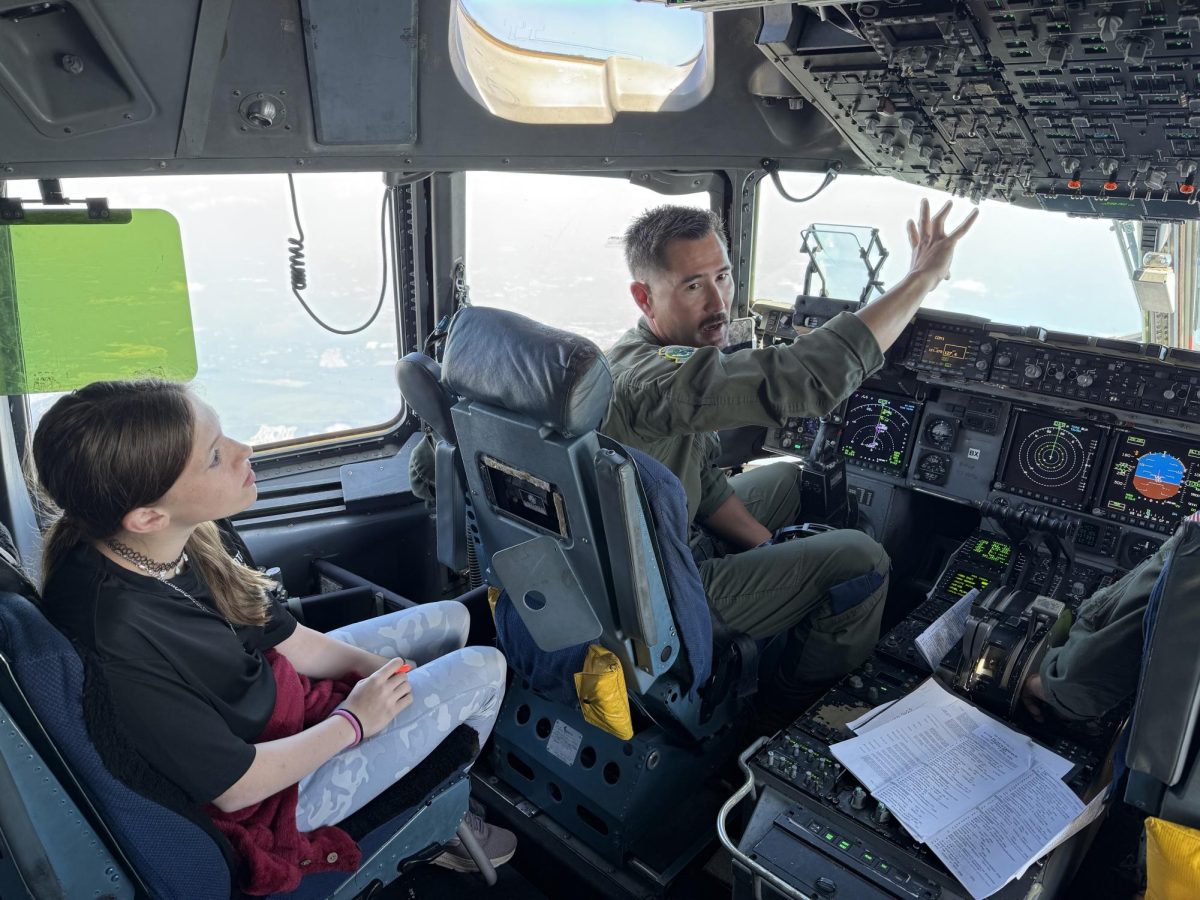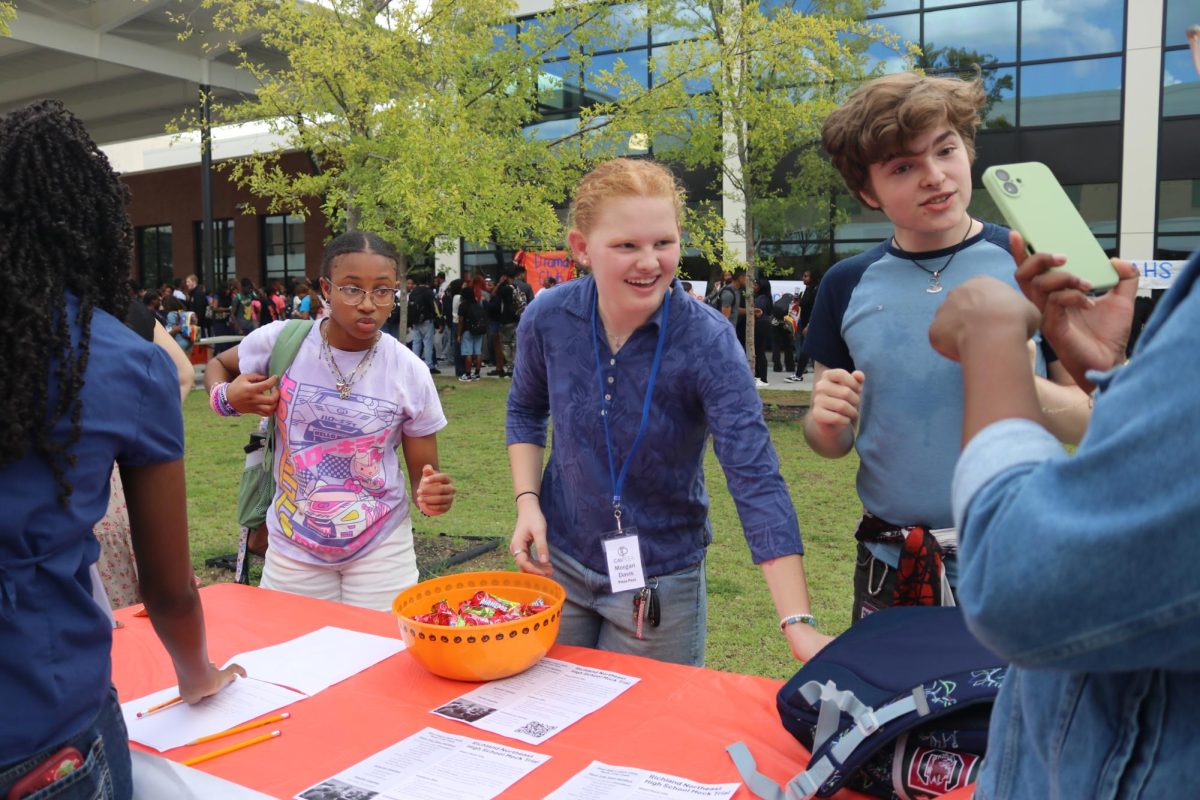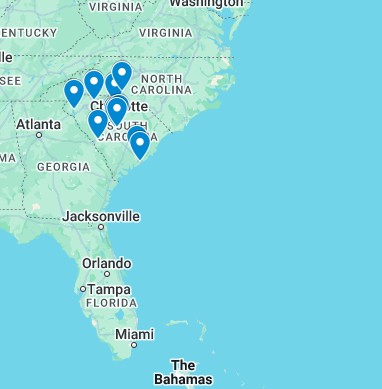March 6, 2025, started like any other day in my life. I woke up, made a big breakfast, got ready, and went to school. I spent the whole day ready to go to the field, excited to play for RNE against Lancaster High School’s soccer team. I watched their highlights, studied their style of play, and made a list of players I needed to defend against.
3:53 p.m. – The final bell rang, and I rushed to the carpool to meet up with my teammates so we could walk to the field together.
4:30 p.m. – We’re out of the locker room, doing warm-ups, one hour from kick-off. The anticipation built up for the kickoff.
5:25 p.m.- Coach Daniels gathered us and gave us the starting lineup. I’m in it starting at Center Defensive Midfield (CDM).
5:30 p.m.- Kickoff, the Lancaster striker rolled it back to his midfielder, and we’re underway.
Graphic by Soren Jones
The first half wasn’t bad. Something had felt off in the previous two matches against Westwood and AC Flora during a tournament the week before, but I thought it was pre-match nervousness. When the second half began, I felt alright, nothing out of the norm. But, as the match progressed, I felt more winded. It was harder to keep up.
Then, after Lancaster scored a second goal, the adrenaline dropped, and it hit me. A strong, heavy feeling in my chest, in my heart. I suddenly felt dizzy.
Everything was spinning, and I felt like I was about to pass out. I had to drag myself from the field to the touchline for a substitution. I tried to call my coach, but my speech was slurred, my legs felt weak, and I couldn’t seem to get out a coherent sentence. I eventually made the hand signal for a rotation, and I reached the bench. As I lay on the ground next to my coach, it hit me again, that same feeling. Everything turned to darkness.
I woke up to the team medic talking. I heard her, understood her, and yet when I tried to respond to questions, all that came out was pure babble and gibberish. After a minute of that, I was able to get out three clear words:
“I am fine.”
The medic obviously didn’t believe me. My cousin, the only family member at the match, came out of the stands to discuss what happened. We walked to the ambulance, where a stretcher waited for me. I didn’t want to get on it; I didn’t want to cause a scene. They still made me. The Lancaster fans booed me as I was wheeled into the ambulance. They were salty people, so there was nothing there that surprised me. The paramedics said everything looked fine. I thought that meant I was going home that night. Instead, they sent me to the hospital downtown. However, the worst of my issues was yet to come.
They set me up in a basic room and gave me apple juice. My family and I waited for about an hour, after which they started to draw blood. They drew blood from me four times. They told me the tests kept failing, that they had to keep trying. Every time, they had to open a new incision, poking me over and over. It was horrible.
After a couple more hours, around midnight, I finally got a proper room to spend the night. At this point, I still had no clue what had happened to me on the field, and neither did they. I didn’t sleep very well because of the sheer amount of tests and blood draws I had to undergo throughout the night.
They spent all of the following morning trying to pin down a definite diagnosis. When they couldn’t find anything, they told me I would be discharged. They told me they still didn’t know what happened.
I was discharged at 11:00 a.m. and got home at noon. As we were about to get out of the car, my mom’s phone rang. It was my doctor. He had diagnosed me with an Anomalous Coronary Artery. It’s a very rare condition, and it basically squeezes your artery to the point where you can’t get enough blood. The worst part was that the only treatment was surgery. This meant no sports, which crushed me. I had worked harder than I ever did before, and all my work went straight down the drain. I would have to sit out my first high school soccer season.
Graphic by Soren Jones
I tried to be positive about my situation and distract myself with other things, but I don’t have the same passion for anything like I do for sports. It took a toll on me mentally. The worry about what was to come consumed me, and it began to distract me from living a proper life. My grades started to slip, mostly because I was scared to die. I couldn’t stop thinking about how I almost died on the field and how I could still die at any moment, even during the operation. Everything felt hopeless.
The rest of March felt like a cycle I didn’t want to go through. My coach offered me a non-playing position on the team as a manager. I initially thought I would like it; it would help me still feel like a part of the team while being safe. However, while I loved being with my teammates, travelling to away games, and going up to the press box to run the scoreboard, it just isn’t the same when you see all your teammates and friends succeed and think, “Damn, that’s supposed to be me.”
I did my best not to show how I felt, mostly for my mom, who I knew would suffer if she knew I was struggling. One night in April, I got home from a game to the news that my surgery had been scheduled. I wanted this operation done as soon as possible because I just wanted to get back out on the field. But I had to wait until June 27. Early April and late June felt like an eternity apart, but I knew I had to remain hopeful; it was just two months away. The rest of April flew by, and I began to feel more hopeful. For once, I felt happier on the sidelines, and I started to feel like I could beat this.
Next thing I know, it’s May, just one month out from operation day. The soccer season ended, and we got our end-of-season awards. That night, when everyone clapped for me as I walked up to get my award, for the first time since March, I felt like I was on the team again.
The school year ended, and it’s June, operation month. I realized I had just three weeks until surgery, and I started to see it as having three weeks left to live. There was no guarantee that I would survive the operation, so I started to do everything as if it were the last time I would do it.
June 2 – I went out to hang out with my friends. June 7 – I stayed up all night playing video games with them. June 10 – I tried new foods. June 12 – I watched an old movie with my family. June 16 – I went to Atlanta with my mom to watch my favorite soccer team, Chelsea, play in person. June 25 – the day before I had to check into the hospital for my pre-surgery workup, I sat on my front porch, staring out at enormous clouds as a thunderstorm rolled in.
I couldn’t stop thinking that this could be the last time I see all of this.
In the early hours of June 26, I made my bed neatly, setting all the pillows perfectly in place. I loaded my suitcase into the car and sat on the trunk to watch the sunrise. I hugged my dog and said goodbye, praying this wouldn’t be the last time I saw her. We drove two hours to Charleston for the operation, arriving around 9 a.m. and entering the hospital at 10. I had my blood drawn, and they put monitors on my chest. They ran some quick tests and told me to wait for my surgeon.
In the afternoon, he finally arrived, and we talked about the operation. He gave us a rundown of everything that would happen the next day, along with a page of instructions outlining what I needed to do the night before. My family and I had dinner together, and afterward, we went back to our hotel. That night, I played video games and tried to calm myself down, knowing what would happen the next day. I finally got into bed but knew I wouldn’t need to sleep much that night.
6:15 a.m. – I arrived at the Shawn Jenkins Children’s Hospital and checked in to begin the pre-surgery registration process. 6:30 a.m. – I went to a waiting room to prepare. I was told to change out of my clothes and put on a gown. 6:45 a.m. – They told me I would be wheeled into the operating room at 7:15. The nurse administered medication, which was intended to calm my nerves before the surgery. However, this same medication also induces amnesia, which means I shouldn’t remember any more of the preoperative stuff. The last thing I remember is having the medication administered.
After that moment, I slowly opened my eyes and woke up in a bright room with a big TV in front of me. I had dreamt of this moment for months now: the moment when it was all over and I could finally feel safe again. The first thing I asked was what time it was; it was 5 p.m.. The operation had ended at 10 a.m. I had been asleep for seven hours. I didn’t really want anything else, so I just went back to sleep.
I woke up 20 minutes later to the worst pain I had ever felt in my life. For whatever reason, the nurses decided against giving me pain medication, and so I felt everything until 9 p.m., which is when they would give me the medication. It was the worst four hours of my life. Every single breath felt like getting stabbed. Also, I wasn’t allowed any water; I hadn’t had any since 5 a.m..
Finally, 9 p.m. came, and I got my water (which I threw up immediately after drinking) and the pain medication (which really helped me finally get proper sleep). I woke around 11 p.m. when I remembered that I hadn’t told any of my friends or family how everything went. And so, at 11:24 p.m., I took the photo below and sent it to my Instagram story.
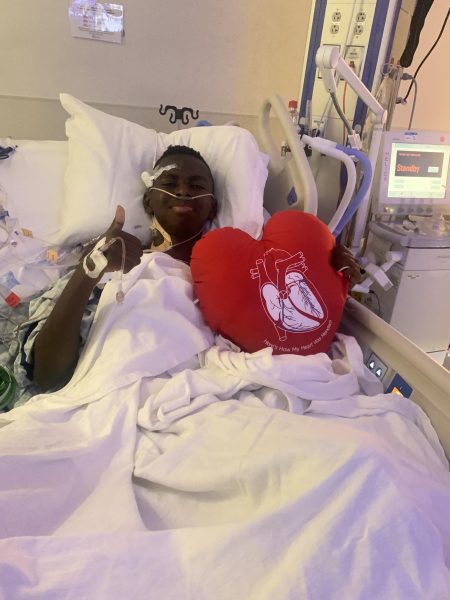
That night, I tried to sleep after everything that had happened, but I kept being woken up by my nurses running tests, taking blood, and giving me medication.
The next couple of days were similar: the nurses made me get up and walk around for a while after day two, and on day three, I was allowed to walk around the third floor. I was supposed to be released on day four, but I requested to stay another night so I could manage the pain better.
Day five – I was finally released and wheeled out to my car, ready to go home. The only problem, as I mentioned earlier, is that this surgery was in Charleston, which meant I had to sit in a car for two hours. It wasn’t fun, but those two hours flew by, and suddenly I was finally back at my house. I ate dinner and went to bed, tired from the medicine I had been given the past few days. This was when the healing began. For the final five weeks of summer, I rested, stretched, went to follow-up meetings, got chest scans, and walked a lot to prevent blood clots.
Finally, school came. I was slightly nervous. We do a lot of walking across campus, and I wasn’t sure how I would cope with it. But just as I had been for the previous six months, I had to be strong and see how things would go, and it’s safe to say everything went great. I didn’t feel any of the tightness or pinching or poking pains I had felt before. I finally felt normal again. During a follow-up check-in in late July, I was told I would be cleared to return to sports on August 8, six weeks after surgery. I had finally made it to the other side of all of this.
On August 8, for the first time in six months, I finally trained properly again. I had beaten this. As I’m writing this, it’s August 29. I’m still training hard to get back to my normal pre-operative self, and I’m making progress every day. I wanted to tell my story to inspire anyone reading this to know that when things get bad, keep pushing and never give up. No matter how scary or difficult it seems, you have to stay strong. Don’t ever let your struggles overcome you. You will beat this.



